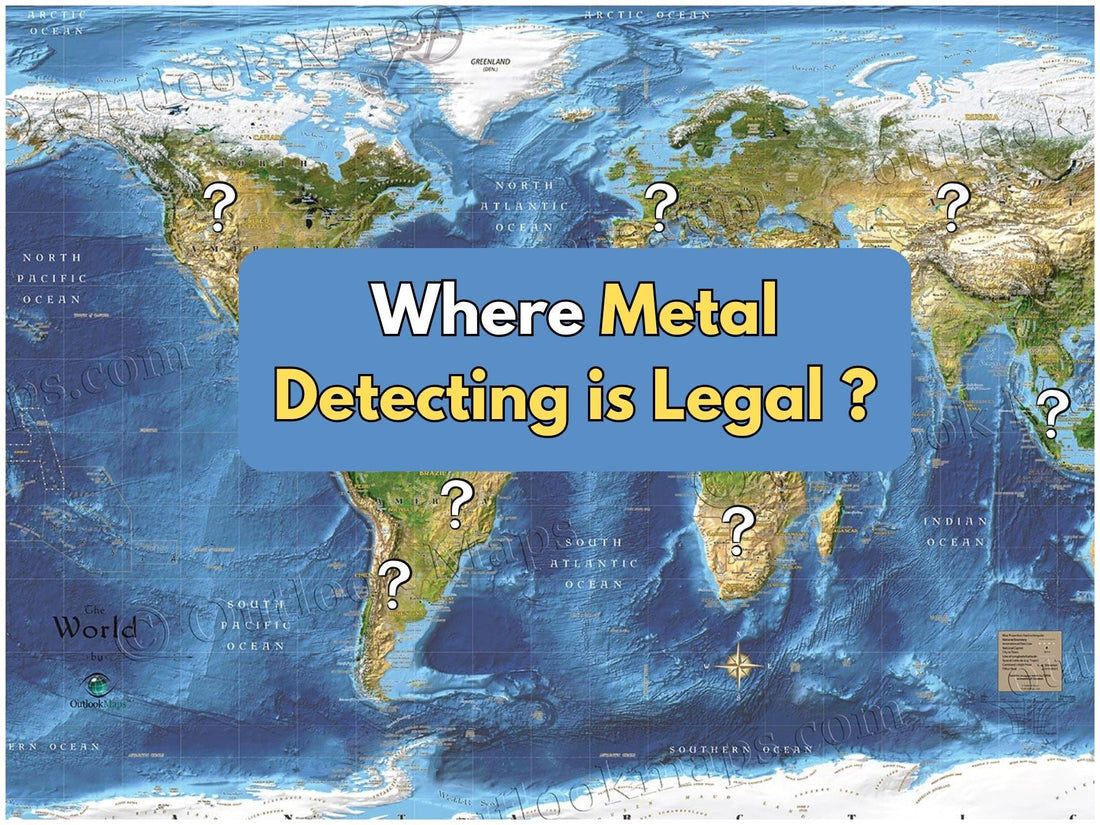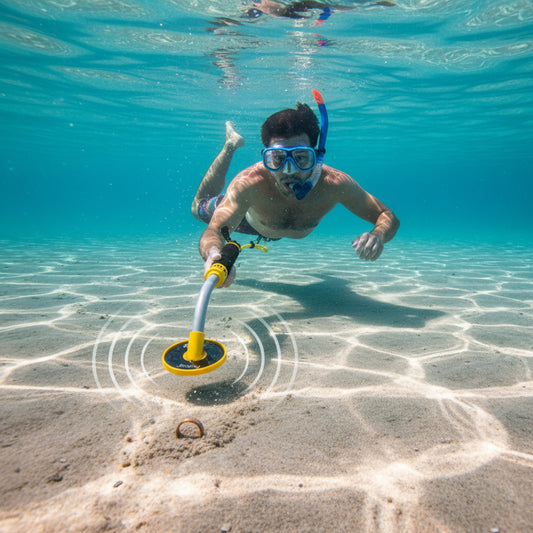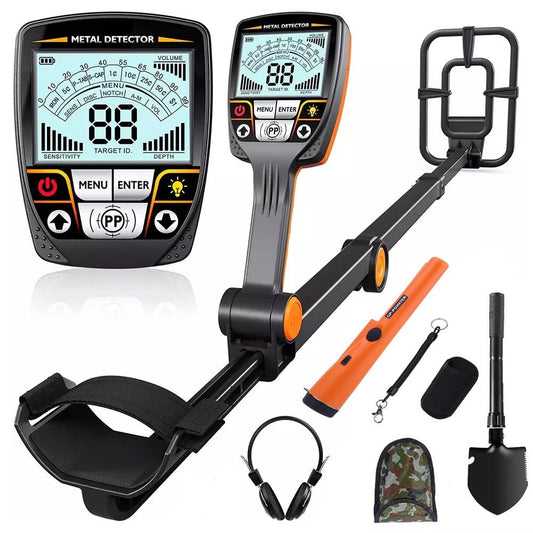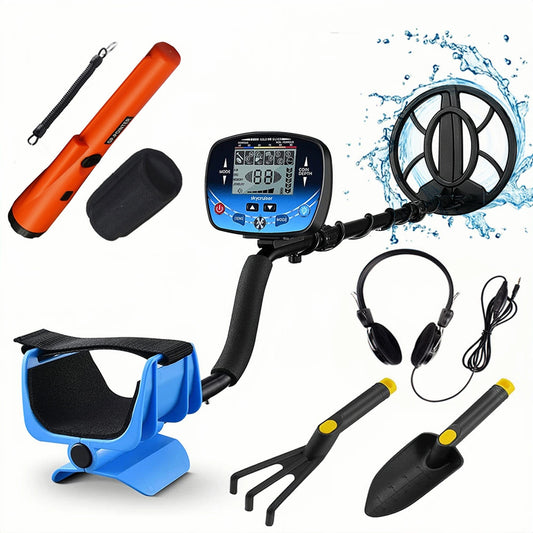
Is Metal Detecting Legal ? Metal Detecting Laws Around the World
Share
List of countries where metal detecting is legal
In many countries, metal detecting is a legal and welcomed activity, often regulated to protect historical sites and private property. Here are a few popular destinations for metal detecting enthusiasts:
| Country | Summary of Regulations |
| United States | Generally allowed; restrictions in state/national parks. |
| United Kingdom | Legal with landowner permission; Treasure Act applies to valuable finds. |
| Australia | Permitted in prospecting areas; restricted near archaeological sites. |
| Canada | Allowed in most areas; restrictions in provincial parks. |
| France | Legal on private property with permission; restricted on public lands. |
| New Zealand | Permitted in designated areas; heritage sites protected. |
| Italy | Generally allowed, but restricted near historic sites. |
| Spain | Legal on beaches; restricted near archaeological areas. |
| Germany | Permitted with regional permits; some federal lands restrict it. |
| Netherlands | Legal with permits; restrictions in archaeological sites. |
| Sweden | Generally allowed; sensitive areas require permits. |
| Finland | Legal on public land; historic sites restricted. |
| Norway | Allowed on beaches and open lands; restricted near heritage areas. |
| Japan | Permitted in many areas; regulated near historic sites. |
| Ireland | Generally allowed; restricted in historic areas. |
| Denmark | Allowed on private land with permission; restrictions in protected areas. |
| Portugal | Generally allowed but requires permits in historic areas. |
| Belgium | Permitted with permission; strict archaeological protection. |
| Iceland | Permitted in non-sensitive areas; historic sites protected. |
| South Africa | Legal on beaches with permission; restricted in cultural sites. |
| Switzerland | Allowed in some cantons; varies by region. |
| Mexico | Generally allowed; permits recommended for sensitive areas. |
| Brazil | Allowed on private land with permission; heritage areas restricted. |
| Czech Republic | Legal with permits; restricted around archaeological sites. |
| Poland | Allowed on private property with permission; restricted in heritage areas. |
| Hungary | Permits required in most areas; heritage sites are protected. |
| Austria | Permits needed; certain areas restricted. |
| Slovakia | Permits required; historic sites strictly protected. |
| Bulgaria | Legal on private land with permission; regulated near historic areas. |
| Romania | Permits required; strict rules near archaeological sites. |
| India | Legal in some public areas; historic and religious sites restricted. |
| Thailand | Generally allowed, but regulations apply near protected sites. |
| Indonesia | Allowed on beaches; restricted near heritage sites. |
| Malaysia | Permitted on beaches and some public lands. |
| Argentina | Legal in some public areas, restricted near heritage areas. |
| Chile | Generally allowed with permits in certain areas. |
| Colombia | Allowed in some regions with permits; historic sites protected. |
| Peru | Permits required in most regions; strict near heritage sites. |
| Turkey | Allowed in some areas with permits; archaeological sites restricted. |
| Israel | Permits required due to heritage protection laws. |
| Philippines | Legal with permission; some areas may require permits. |
| Jamaica | Permitted with permission; certain areas restricted. |
| Bahamas | Allowed on beaches; sensitive areas restricted. |
| Sri Lanka | Permits required; historic sites protected. |
| Ghana | Generally allowed; historic sites restricted. |
| Kenya | Legal in some areas with restrictions. |
| Morocco | Allowed in designated areas with permits. |
| Tanzania | Legal in most regions; certain sites restricted. |
| Vietnam | Permitted in some areas; restrictions near heritage sites. |
| South Korea | Legal on beaches and public areas; restricted near historic sites. |
List of countries where metal detecting is illegal
Certain countries impose strict bans on metal detecting due to cultural heritage protection or other concerns. In these places, metal detecting is either heavily restricted or entirely prohibited:
| Country | Summary of Regulations |
| Egypt | Illegal due to heritage site preservation laws. |
| Greece | Prohibited to protect ancient artifacts and sites. |
| Turkey | Highly restricted, especially near cultural heritage sites. |
| China | Illegal, especially near archaeological areas. |
| India | Restricted near religious and historic sites. |
| Saudi Arabia | Prohibited to protect heritage sites. |
| Russia | Restricted in most areas; illegal near historic sites. |
| Brazil | Illegal in some areas due to preservation laws. |
| Israel | Heavily restricted due to heritage site protection. |
| Pakistan | Prohibited to protect archaeological sites. |
| Thailand | Restricted in archaeological areas. |
| Afghanistan | Illegal due to heritage preservation. |
| Iraq | Prohibited to protect historic sites. |
| Syria | Restricted due to archaeological preservation. |
| Jordan | Illegal in most regions to protect heritage sites. |
| Iran | Prohibited to protect cultural heritage. |
| Uzbekistan | Illegal in most areas to protect historical artifacts. |
| Algeria | Restricted near historical and cultural sites. |
| Eritrea | Illegal to protect cultural heritage. |
| Libya | Prohibited in most regions for artifact preservation. |
| Myanmar | Illegal in many areas to protect historic sites. |
| North Korea | Strictly prohibited. |
| Venezuela | Restricted in most regions. |
| Cambodia | Prohibited to protect heritage sites. |
| Nepal | Illegal near cultural and historical landmarks. |
| Bangladesh | Prohibited near archaeological sites. |
| Kazakhstan | Illegal in most areas. |
| Laos | Restricted to protect heritage. |
| Tunisia | Illegal near archaeological sites. |
| Sudan | Prohibited to protect cultural heritage. |
| Yemen | Restricted due to heritage laws. |
| Lebanon | Illegal to protect historic artifacts. |
| Bhutan | Prohibited to protect heritage sites. |
| Qatar | Restricted to protect archaeological sites. |
| Bahrain | Prohibited to protect historical artifacts. |
| Oman | Illegal near heritage sites. |
| Mongolia | Restricted in many areas. |
| Mauritania | Prohibited to protect cultural heritage. |
| Somalia | Illegal in many areas. |
| Ethiopia | Restricted near historical sites. |
| Angola | Prohibited to protect heritage areas. |
| Congo | Illegal near archaeological sites. |
| Zimbabwe | Restricted in many regions. |
| Uganda | Prohibited near heritage sites. |
| Bolivia | Restricted to protect cultural sites. |
| Paraguay | Illegal near historic areas. |
| Madagascar | Restricted in many regions. |
| Mozambique | Prohibited to protect heritage. |
| Nicaragua | Restricted in heritage areas. |
| Honduras | Prohibited near archaeological sites. |
Metal Detecting Laws & Code of Ethics
While laws outline the boundaries, a code of ethics helps detectorists enjoy their hobby responsibly. Following ethical guidelines not only preserves the land but also fosters respect for historical and archaeological sites.
Private Property
Detecting on private property is generally allowed if you have the landowner's permission. Failing to get permission is not only disrespectful but also illegal in many areas, leading to possible fines or worse consequences.
Always communicate with property owners and ensure they’re comfortable with any digging.
Common Restrictions and Prohibited Areas
Many countries prohibit metal detecting in areas with cultural or historical significance, such as:
- Archaeological Sites: Most archaeological sites are protected by law, and metal detecting is strictly prohibited to preserve ancient artifacts. Unauthorized detection on such sites can result in severe fines.
- State Parks and Historic Locations: In many regions, metal detecting in state parks or protected historic landmarks requires special permission or is outright banned.
- Military Zones: Due to safety and security reasons, military areas often prohibit any metal detecting.
By avoiding these prohibited areas, detectorists respect the efforts to preserve artifacts and cultural heritage for future generations.
Discover our article about the best places to go metal detect.

Worst Consequences of Non-Compliance
Non-compliance with metal detecting laws can have serious consequences. Penalties include fines, legal action, or even criminal charges in cases of extreme violations, such as digging on prohibited sites.
Notable cases involve individuals fined or arrested for unearthing valuable artifacts without proper permissions. These consequences underscore the importance of respecting laws and local guidelines.

Federal Laws and State Laws for metal detector
In countries like the United States, federal laws govern detecting on public lands, while state laws may add additional requirements.
For instance, federal lands, including national parks, prohibit metal detecting, while individual states may have designated areas or state parks where permits are allowed. Detectorists must stay informed about both levels of law to prevent legal issues.

Should I Get a Permit to Dig ?
In many cases, a permit is required to legally metal detect in regulated areas. Applying for a permit often involves submitting details about where and why you intend to detect.
Permit regulations vary, but most parks and protected areas will require some form of written approval. Checking in advance and applying for any necessary permits will save time and allow for worry-free exploration.
Our Digging Recommendations...
For responsible and enjoyable metal detecting, follow these best practices:
- Respect Boundaries: Always obtain permission for private property and avoid prohibited areas like archaeological sites and historic landmarks. Staying within legal bounds protects you from fines and legal issues.
- Preserve the Environment: When you dig, refill holes to leave minimal impact on the landscape. This small action shows respect for both the environment and the landowners who allow detecting.
- Handle Artifacts Responsibly: If you encounter items of historical or cultural significance, avoid removing them. Reporting the find to the relevant authorities, especially if found in an area with historical context, helps preserve heritage.
- Get the Necessary Permits: Permits are not just formalities; they allow detectorists to enjoy their hobby while respecting the area’s regulations. Make sure to research permit requirements in every location.

Metal detecting can be a rewarding hobby if done ethically and responsibly. By following guidelines and respecting metal detecting laws across different regions, detectorists contribute to preserving cultural history while enjoying the thrill of discovery.
Discover our article about how to make metal detecting profitable.




